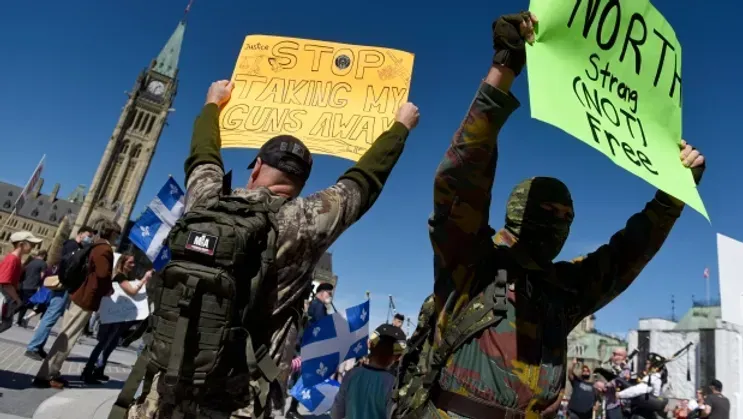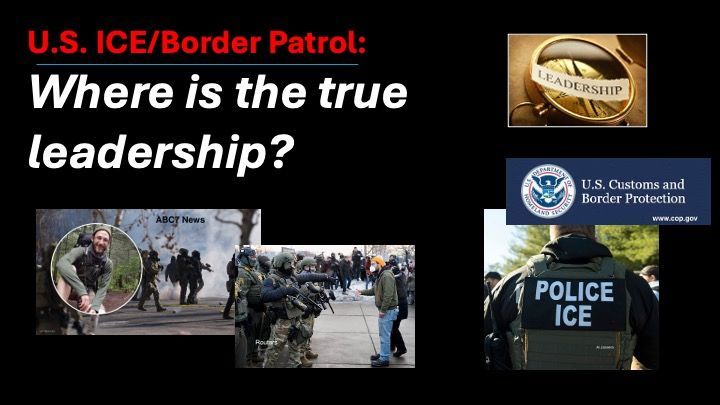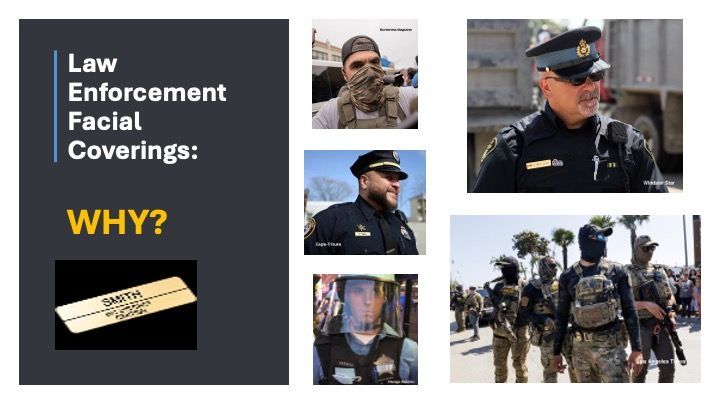New Paragraph

From guns and gangs to Bill C-21: Canada's top public safety issues in 2023
As a career police officer, author, speaker and CTV News’s Public Safety Analyst, I watch public safety events unfold around the world, with a particular emphasis on policing. I write about some issues, talk about others, but I consider them all.
The top five issues of 2023 from my perspective, in no specific order:
MURDERS OF OUR POLICE OFFICERS
The fall of 2022 saw an unprecedented rash of murdered police including the murder of OPP Const. Greg Pierzchala in a shooting near Hagersville on December 27, 2022 – the same day he was told that he had successfully completed his probationary year. The first five months of 2023 saw a continuation of that tragic and senseless loss.
Const. Travis Jordan and Const. Brett Ryan of the Edmonton Police Service were shot and killed in hail of gunfire in March. Later that month, Sûreté du Québec Sgt. Maureen Breau was stabbed to death in Louiseville Que. Then OPP Sgt. Eric Mueller was fatally wounded by gunfire east of Ottawa in May. Most recently, RCMP Const. Rick O’Brien was shot in killed in September in Coquitlam BC. Other officers were seriously wounded in these incidents and in others, for no other reason than their wearing of uniforms. I pray that it was just a really bad year and not a sign of things to come.
BILL C-21
An act to place even more regulations around firearms ownership in Canada, including a freeze on the legal sale of handguns, was passed by the House of Commons in the spring and just recently proclaimed into law. I do not believe anything in this legislation will mitigate the threat of the violent use of smuggled U.S. handguns by criminals on the streets of municipalities and in Indigenous communities in this country. Smuggled handguns have always been illegal – as have true assault rifles and so-called 3D guns, and those that choose to use them are not afraid of the law, up to and including murdering fellow Canadians. The only people that will be impacted by this legislation are legal collectors and sport shooters that already obey the law to the letter, as well as the commercial businesses that lawfully sell handguns to them.
A so-called Red Flag law will give private citizens the ability to apply for a firearms prohibition against someone. Existing criminal code provisions already allow ‘police’ to seek ownership suspension and to obtain warrants to seize firearms from those that pose a threat to public safety, or without warrant in exigent circumstances. Will these public applications help? I’d prefer to see police remain the focal point on this. In addition, penalties upon conviction for some firearms offences were enhanced, which is great, but this same government was responsible for reducing some of those penalties since they came into power. I guess what was old is new again.
There are other items contained within the act but simply put, government’s claim that C-21 is “comprehensive” and suggestions that it is a game-changer of sorts are political rhetoric at its finest. I assure you we won’t soon see lineups of violent criminals and gang-bangers turning in their guns and applying for service industry jobs. Nor would the contents of this bill have prevented the Nova Scotia mass shooting or even the recent shooting deaths of children and adults in my hometown of Sault Ste. Marie, all of which were committed with illegally possessed firearms.
GUNS AND GANGS
And on it goes. The violent saga continues. I’m resigned to the reality that I may well have this item in my top five for the rest of my existence. We will not arrest our way out of this scourge. Police need support – from governments, the courts, the public, educators and various social service agencies. Mental health and addiction professionals have a huge role as well, as do parents. In the long-term, keeping young people out of destructive lifestyles is critical and in the short-term, rigorous intelligence gathering, investigations and enforcement is a must, including bail and parole improvements and stemming the 24/7 flow of handguns from the U.S. into our communities. If the federal government doesn’t soon support the RCMP and border protection officers with adequate funding and human resources to work international firearms smuggling cases and to interdict guns before they get into the hands of criminals here, we’re in trouble. That is where the firearm threat truly lies. Provincial and municipal police can help fight gun smuggling but can’t monitor thousands of kilometers of international border.
THE EMERGENCIES ACT INQUIRY
The commission, established following Canada’s questionable decision to invoke the never used Emergencies Act during “Freedom Convoy” protests in Ottawa and elsewhere in Canada in January and February of 2022, was led by Ontario Court of Appeal Justice Paul Rouleau. His report was released in February 2023.
Justice Rouleau largely defended the government’s decision to invoke the act, stating that he had concluded that a “very high threshold required for the invocation of the act was met.” I don’t agree, but he’s a Justice, and I’m not. However, he did go on to say, “I also reach this conclusion reluctantly.”
He was critical of police and government in terms of their “missteps” and “failures” around anticipating, planning and collaboration, following months of inconsistent evidence that showed tremendous communication disconnects from police leadership and personnel, and government agency perspectives. He felt that some of these errors allowed the Ottawa protest to take root and become so complex that government had to take extraordinary action (my words, not his).
Then RCMP Commissioner Brenda Lucki was effectively thrown under the bus by government bureaucrats and elected officials, who seemed to remember things differently than she did as to what she told them and when during the protests – things that should have lessened government anxiety that the act was required to restore order. Frankly, in my opinion, her evidence had much more of an air of sincerity around it than that of the contradictory witnesses but I digress. She submitted her letter of resignation as commissioner two days before Justice Rouleau released his findings.
INTERNATIONAL CONFLICTS
The Israel-Hamas war is horrendous to watch from afar, as is the ongoing Russian attack on Ukraine. The deaths of countless innocent people – including the rape and torture of women and children and destruction of historical buildings and infrastructure, is profound to say the least. But besides the provision of Canadian government tax dollars in these dreadful situations, there are other potential and significant impacts on us here in Canada.
Public protests – both pro and con, particularly around the Israel-Hamas war conflict - continue to occur. Some have been aggressive, and I predict over time will increase in intensity. These events are resource draining and publicly divisive at best. Will related acts of terrorism occur as these conflicts continue? Antisemitic and anti-Muslim threats and acts, even around places of worship and schools, are significantly on the rise. Police will be challenged from intelligence, prevention, response and investigation perspectives and it will get worse before it gets better. Police are already responding to new types of crime every day, but the old crimes and demands haven’t gone away. Now this. Something has to give.
I apologize if I sound doom and gloom, but these are serious issues that we all need to consider. It’s not new though. We’ve always had challenges and always will but I am confident we will remain light-years ahead of most countries in terms of our safety. I have complete trust in Canadian police to continue doing their best to make a difference and keep us safe but they need help – including from us and the governments we elect.
Wishing all a wonderful and safe holiday season and prosperous new year. Please thank an emergency responder when you can and pray for their safety every day of 2024.




